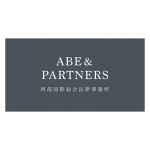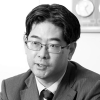In July 2020, the Patent System Subcommittee, Intellectual Property Committee, Industrial Structure Council (the subcommittee) published an interim report on ‘The desirable patent system in the era of AI and IoT technology’ (the interim report).
The subcommittee further discussed plans to publish ‘The desirable patent system in the era of with COVID-19 / post COVID-19’ (the report) in February 2021. The outline of the report is as follows.
New litigation model to achieve earlier dispute resolution: a two-stage litigation system
In the current patent infringement litigation system, a two-stage examination is conducted in which the examination for infringement is followed by the examination for damages.
To meet the demands of obtaining final and binding judgments on the infringement at an early stage without examining damages, or the demands of achieving an earlier injunction, an establishment of a ‘two-stage litigation system’ – which enables a final judgment only for infringement – was considered. The consideration focused on the German system, in which a two-stage litigation is widely adopted.
The interim report concluded that granting the right to seek the rendering account information to the patentees, as in the German system, is of a great concern and should be considered carefully. The report concluded that it should be discussed again when specific demands increase, considering many opinions expressing doubts about the demands of a two-stage litigation, and views that even if there are demands, legal amendments are unnecessary because means taken under the current law would be sufficient.

Source: JPO material
Restriction of disclosure of evidences to the parties: attorneys’ eyes only
The industry had opinions to require introduction of a system, in which the evidence submitted by the defendant should not be disclosed to the plaintiff themselves, but should be disclosed only to the plaintiff’s attorney, in a system referred to as the ‘attorneys’ eyes only’ in the US. Thus, the introduction of such a system to restrict requests from the party to inspect or copy the trade secrets included in the evidence if the party consents was considered, when the evidence including the trade secret will be disclosed only to the attorney with a protective order designating only attorneys as the addressee.
In the subcommittee's discussion on the interim report, there were opinions calling for a system that does not presuppose the consent of the party, and opinions concerning the defendant’s trade secrets be disclosed to the plaintiff by the inspection system introduced in the 2019 amendment of the Patent Act. Therefore, the following points were considered: (i) introduction of a system to restrict the plaintiff's inspection of the evidence regarding the information that the defendant wishes to restrict the inspection only to the plaintiff’s attorney, regardless of the consent of the plaintiff; and (ii) introduction of a system to restrict the plaintiff’s inspection of the redacted inspection report in the inspection system.
The report concluded, that the necessity of introduction of the system should be further discussed, pointing out that regarding the restriction of access to the information without obtaining the consent from the plaintiff, both (i) and (ii) have issues such as risks of violation of the plaintiff’s constitutional right of access to the courts, difficulties in pursuit of litigation, and dealings with party’s self-representation case.

Source: JPO material
Third party opinion solicitation system: amicus briefs system
In the era of artificial intelligence (AI) and internet of things (IoT) technology, the patent infringement lawsuits would possibly become more sophisticated and complex than before, and thus it is increasingly important to create an environment that allows the judges to make decisions by referring to a variety of opinions.
In the Apple v Samsung lawsuit (judgment of May 16 2014, the Grand Panel of IP High Court), although there was no explicit provision, the third parties' opinions were solicited under the agreement of both parties. In the interim report, there was no major objections to the introduction of a third party opinion solicitation system utilised according to the court's necessity.
The report concluded as follows:
(i) A system to solicit opinions from a wide range of third parties according to the court's necessity should be introduced;
(ii) The issues to solicit opinions should not be limited to the legal issues or a rule of thumb, but should cover the issues that the court deems necessary depending on the cases so that the opinions such as actual business situation can be solicited;
(iii) The procedures should be that opinions are solicited by the petition of the parties, and the third party submits the opinions to the court, then the parties inspect and copy the opinions and submit them to the court as documentary evidence, the court should adopt the opinions as basis of its decision;
(iv) The lawsuits regarding patents and utility models should be targeted, and necessity of introduction of lawsuits for design patents, trademarks, and litigations rescinding the trial decision should be discussed further;
(v) The target instances should be the Tokyo District Court, the Osaka District Court, and the IP High Court; and
(vi) The parties should not be prohibited on encouraging the third parties to submit opinions. These were adopted in the 2021 amendment of the Patent Act.

Source: JPO material
Punitive damages and a disgorgement of profits
Financial remedies for patent infringement have been treated by the 2019 amendment of the Patent Act and the judgments of the Grand Panel of the IP High Court, but there is still a view that they are inadequate. The subcommittee considered punitive damages and a disgorgement of profits, and the interim report concluded that it should be further discussed focusing on a disgorgement of profits, as many negative opinions were expressed on the punitive damages.
The report stated it should be cautious to proceed with an earlier introduction of the punitive damages because of many negative opinions. Then, it concluded that the disgorgement of profits should be considered when specific demands increase because there were many cautious opinions about the early introduction of the system since recent cases have tended to grant high damages, and after the 2019 amendment of the Patent Act becomes effective, the damages are expected to become higher.

Source: JPO material
Consent from non-exclusive licensees in correction trials
Under the Patent Act, to file a request for a correction trial or file a request for a correction, the consent from the non-exclusive licensees is required. However, as modes of licensing become more complicated, it becomes difficult in reality to obtain a consent from all of the non-exclusive licensees in correction trials.
In addition, there are cases where the consent from the non-exclusive licensees cannot be obtained due to worsened relationships after the license agreement. In that case, there would be a concern that the patentee’s defense measures will be substantially lost because a request for correction against a request for a trial for patent invalidation cannot be filed.
Thus, in order to establish a system in line with the actual situation of licensing practice, the consent from the non-exclusive licensees in a correction trial, was discussed. The interim report concluded that amendments should be considered so that the consent from non-exclusive licensees in a request for a correction trial or a request for correction is not required.
The report concluded as follows:
(i) The consent from non-exclusive licensees should not be required in a request of a correction trial and in a request for correction in a trial for patent invalidation or an opposition procedure, however the consent from exclusive licensees and pledgees should be required as before;
(ii) The consent from non-exclusive licensees should not be required in a waiver of patent right, however the consent from exclusive licensees and pledgees should be required as before; and
(iii) The necessity of the consent from non-exclusive licensees in the waiver of exclusive license, the waiver of provisional exclusive license, and a patent application based on a registration of a utility model, should be discussed further. These were adopted in the 2021 amendment of the Patent Act.
Takanori Abe
Partner, Abe & Partners












